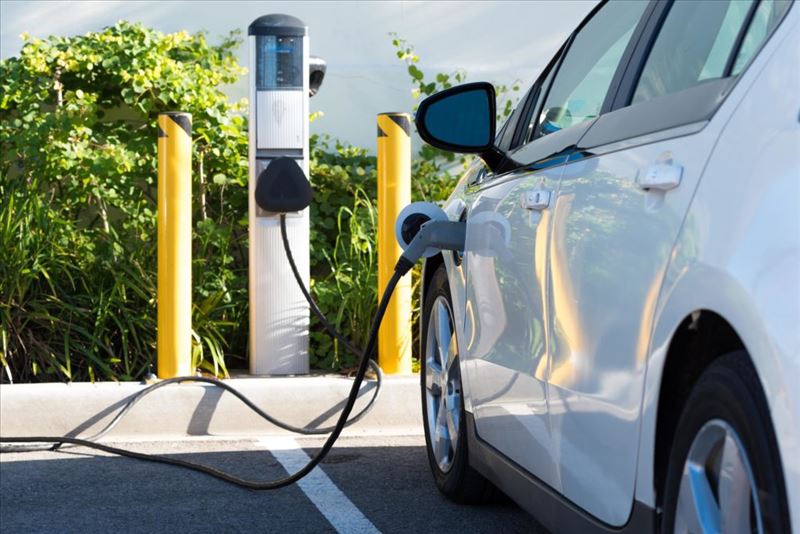
Introduction to electric vehicles and their batteries
The electric vehicle (EV) revolution is well underway, and at its heart lies the evolution of EV batteries. As consumers increasingly turn to these eco-friendly alternatives, one question looms large: How long does it really take to charge an EV? While traditional charging methods can leave drivers tethered for hours, a tantalizing vision has emerged—batteries that could recharge in mere minutes.
Is this just a dream or are we on the brink of transforming how we think about EV batteries? This blog will explore the current landscape of charging technology, examine breakthrough innovations on the horizon, and tackle the challenges that stand in our way toward achieving rapid battery recharging. Buckle up as we navigate through myths and realities surrounding fast-charging EV batteries!
The current state of EV batteries and charging time
The current landscape of EV batteries is a mix of innovation and limitation. Many electric vehicles today utilize lithium-ion batteries, widely praised for their efficiency and energy density. However, charging times can still be cumbersome.
Most standard home chargers take several hours to fully recharge an EV battery. Public fast chargers reduce this time significantly but often range from 30 minutes to an hour for an 80% charge.
While progress is apparent, many consumers seek even quicker solutions. The demand for convenience drives the industry forward as manufacturers strive to meet expectations.
Battery performance also varies based on factors like temperature and charging infrastructure. As automakers roll out new models, they aim to balance power capacity with rapid recharging capabilities—an ongoing challenge in the quest for widespread adoption of electric vehicles.
The potential of fast-charging EV batteries
Fast-charging EV batteries hold incredible promise for the future of transportation. Imagine a world where charging your electric vehicle takes just minutes instead of hours. This potential could revolutionize how we think about mobility.
One key aspect is the development of solid-state batteries. These innovations can significantly reduce charge times while enhancing overall performance and safety. They present an exciting alternative to traditional lithium-ion technology.
Furthermore, advancements in battery chemistry are paving the way for quicker energy absorption. Researchers are exploring new materials that allow faster electron movement, which translates into rapid recharging capabilities.
The convenience of fast charging could also alleviate range anxiety—a major concern among prospective EV buyers. With shorter downtime, more people would embrace electric vehicles as viable alternatives to gas-powered cars.
As automakers invest heavily in this area, we’re on the brink of breakthroughs that may redefine our daily commutes and road trips entirely.
Advancements in technology and research for faster charging
Recent advancements in battery chemistry are paving the way for quicker charging times. Researchers are exploring solid-state batteries, which replace liquid electrolytes with solid materials. This innovation promises not only increased safety but also faster ion movement.
Another promising area is ultra-fast charging technology. Companies are developing new systems capable of delivering high power without damaging the battery’s lifespan. These chargers can potentially replenish an EV’s battery to 80% capacity in just a few minutes.
Moreover, artificial intelligence plays a crucial role in optimizing charging processes. By analyzing data patterns and user habits, AI can enhance efficiency during fast charging sessions.
The integration of graphene into battery designs is another exciting development. Graphene allows for higher conductivity, which could lead to significant reductions in charging time while maintaining energy density.
These innovations represent steps toward making EV fast charging a reality sooner than we might expect.
Challenges and roadblocks in developing fast-charging EV batteries
Developing fast-charging EV batteries is no simple task. One major hurdle lies in the materials used. Traditional lithium-ion technology struggles to efficiently manage heat generated during rapid charging.
Another challenge is battery life. Quick charging can lead to accelerated wear and tear, reducing overall lifespan. Finding a balance between speed and longevity remains elusive.
Manufacturers also face infrastructure limitations. Charging stations need significant upgrades to support faster rates, which comes with hefty costs and logistical concerns.
Additionally, safety standards must evolve alongside new technologies. Ensuring that these batteries operate risk-free while charging in minutes adds layers of complexity for developers.
Regulatory hurdles further complicate progress as governments scramble to keep pace with innovations in energy storage systems. Collaboration across industries might be essential but can often slow down development timelines significantly.
Success stories and real-world demonstrations of fast-charging EV batteries
Several companies are making strides in the realm of EV fast charging, showcasing impressive results. For instance, Tesla’s Supercharger network is a well-known success story. These stations can recharge vehicles to about 80% in under 30 minutes. This convenience has made long-distance travel more feasible for electric vehicle owners.
Another notable example comes from Porsche with its Taycan model, which boasts ultra-fast charging capabilities. It can regain around 60 miles of range within just five minutes at selected DC fast chargers.
Startups like StoreDot have also entered the scene by developing lithium-ion batteries that promise rapid recharging times—just five minutes for a full charge! Their technology is still emerging but holds enormous potential for future EV batteries.
These real-world applications demonstrate that while challenges remain, innovative solutions are paving the way toward faster and more efficient charging experiences for EV users everywhere.
Conclusion: Is the reality of minutes-long EV battery charging within reach?
The prospect of minutes-long EV battery charging isn’t just a dream anymore; it’s becoming an increasingly tangible reality. With ongoing advancements in technology, researchers and manufacturers are pushing the boundaries of what’s possible with EV fast charging. Innovations in materials, such as solid-state batteries and ultra-fast chargers, are paving the way for significant reductions in charge times.
However, challenges remain. Issues related to battery lifespan, heat management during rapid charging, and infrastructure development need careful consideration. Nonetheless, success stories from various companies demonstrate that progress is being made.
As we approach 2025, the landscape of EV batteries is set to transform dramatically. With continued investment in research and development coupled with growing consumer demand for efficient alternatives to traditional vehicles, there’s hope that minutes-long charging could soon become standard rather than exceptional. The future looks promising for those eager to see electric vehicles become even more practical and accessible through rapid charging solutions.








